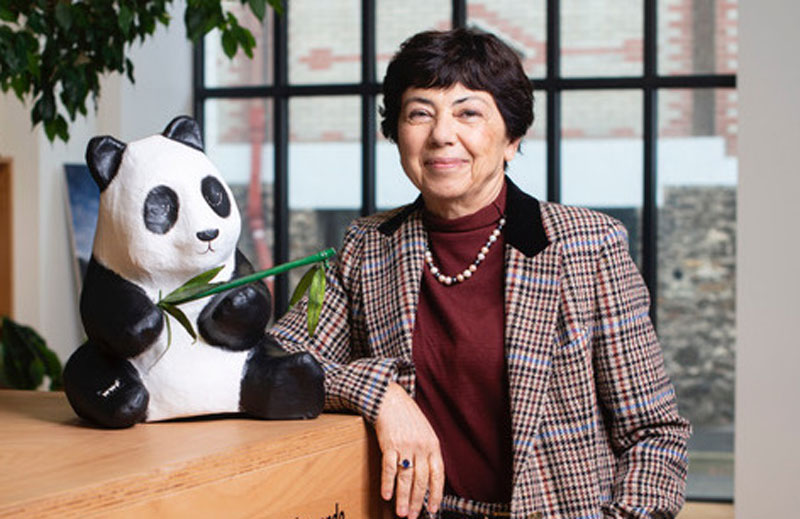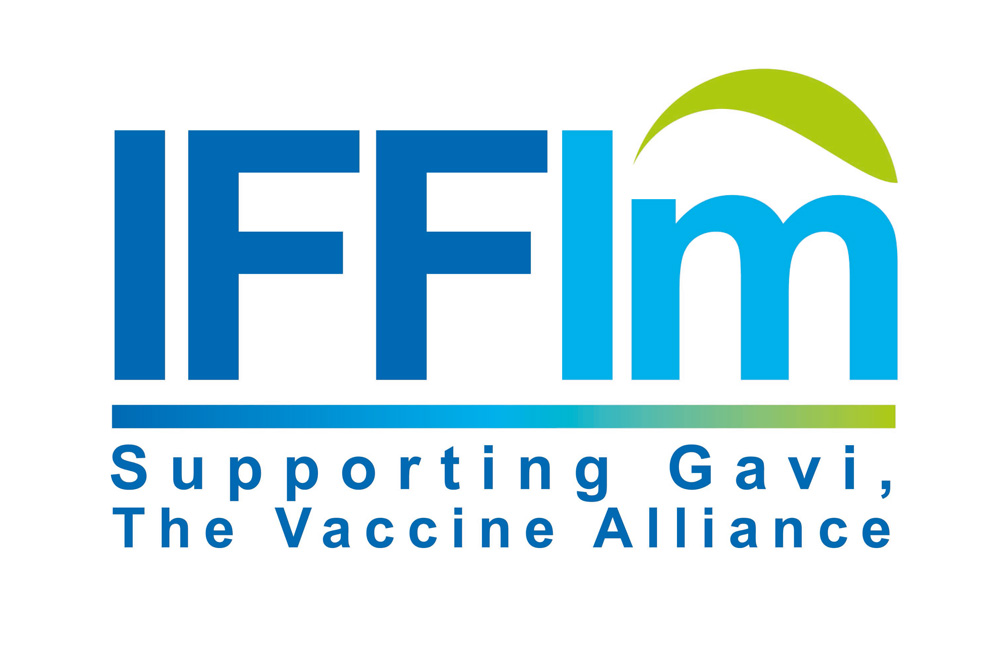The Wild Side of Innovative Finance: Q&A with Monique Barbut
The Wild Side of Innovative Finance: Q&A with Monique Barbut
17 December 2021

Monique Barbut, President of the World Wildlife Fund France
Monique Barbut joined IFFIm’s Board of Directors in July 2021. Currently the President of the World Wildlife Fund France, Ms Barbut has spent her extensive career in public service, playing a key role in environmental and financial global negotiations at the U.N.
Monique Barbut joined IFFIm’s Board of Directors in July 2021. Currently the President of the World Wildlife Fund France, Ms Barbut has spent her extensive career in public service, playing a key role in environmental and financial global negotiations at the U.N. She currently serves as special envoy on biodiversity for the French President. Ms Barbut is a French citizen.
What experiences shaped you as a person and influenced your career?
I always wanted to travel. I graduated with an economics degree and started at a private bank ready to do that. But they told me they would never send me abroad. Women could only be sent to “safe” countries, so they couldn’t send me to a “difficult” country. Meaning, if I were sent abroad, the men who were being posted to difficult countries would never have a chance to go to the “nice” countries. That was 35 years ago.
So I turned to the Agence Française de Développement. I was the first woman to be sent outside Paris, to Réunion, a French island next to Madagascar.
One day, they sent me to a meeting about the environment. It was the late 1980s. It was a high-level meeting, and I was a young woman, but they did not think the subject was very important. At that meeting, I was confronted with questions about the environment for the first time. I was fascinated, and I decided to pursue the subject.
At the time, there was no knowledge about the environment in the French aid system. I took the initiative to gain that experience and developed expertise on environmental issues at the international level.
What I say to women who come to me for advice is, “don’t work on the subject that everybody else is focused on.” It is always in the margins, away from where all the political interest is, that you have freedom to imagine new things.
My family has always come first. I have three children. Two are doctors, and one has a PhD in political science. When they were young, it was difficult to juggle everything, but they were my priority. I remember working in the Cabinet of Ministers. I said, “I can do whatever you want, but at 7 p.m. I have to be home.” Knowing my life was not just my job has also structured my mind.
How do you think SDG goals overlap between the environment, health and other sectors?
There is a direct link between COVID-19 and the environment. We are destroying biodiversity in the ecosystem where wild animals live and pushing them out of their natural habitats. In the last 20 years, every single new virus has been linked with wild animal to human transmission: Ebola, AIDS, SARS, the avian flu. And COVID-19 might not be the most dangerous one.
In France, we are working on One Health, a science-based programme to search for new emerging viruses coming from wildlife in the future. Up until now, we have been very lucky, and we have been able to find these, but we are sure there will be more. The question is, what kind of virus, what intensity?
Currently, I am excited about a project called the Great Green Wall of Africa. The programme concerns 11 sub-Saharan countries and aims to restore 100 million hectares of land and bring jobs. We have been able to leverage US$ 16 billion from different donors.
You were director of the Global Environment Facility (GEF) and proposed its creation. How would you apply lessons learned from your work at GEF? Do you see similarities with IFFIm?
GEF and IFFIm have influenced each other. IFFIm is an independent institution that links a U.N.-type of institution with the World Bank. GEF was designed on that model—independent in governance and decision-making but built on the financial strength of the World Bank and the capacity to spread out through all U.N. institutions.
IFFIm was created later than GEF and was able to create a lean type of governance and management, avoiding GEF’s institutional heaviness. You don’t need a huge administration to make something powerful, and IFFIm is clearly an example of that. We don’t need more institutions. We have enough of them to answer the world’s needs. The problem we are confronted with is to make sure they do not compete but try to collaborate and keep their roles and expertise separate. Division of labour is important.
You are the first IFFIm board member with experience working at the U.N. How do you envision bringing your experience there to IFFIm?
At the U.N., as soon as a subject is on the table, everyone tends to feel they can be responsible. You dilute your skills when each institution looks at too many subjects at the same time. So, I think it is important for IFFIm to stay on track and do what it does best.
IFFIm should not just be thought of as a finance machine. If you want to look for financing for vaccines, you need to have a good reason for it.
In each part of the world there are different reasons why people want vaccination or don’t. I am very surprised to see riots against vaccines in France. Are we taking it for granted that everyone in developing countries wants to get vaccinated? How can we make sure there is buy-in?
There has never been so much talk about vaccination as there is today. How can we leverage this attention to push for new schemes to vaccinate the world? We should take this time to imagine creative new ways to do business.
Share this article
Restricted Access Library
 The material in this Restricted Access Library is intended to be accessed only by persons with residence within the territory of a Member State of the European Union and is not intended to be viewed by any other persons. The material in this Restricted Access Library is provided by IFFIm for information purposes only and the materials contained herein were accurate only as of their respective dates. Certain information in the materials contained herein is not intended to be, and is not, current. IFFIm accepts no obligation to update any material contained herein.
The material in this Restricted Access Library is intended to be accessed only by persons with residence within the territory of a Member State of the European Union and is not intended to be viewed by any other persons. The material in this Restricted Access Library is provided by IFFIm for information purposes only and the materials contained herein were accurate only as of their respective dates. Certain information in the materials contained herein is not intended to be, and is not, current. IFFIm accepts no obligation to update any material contained herein.
Persons with residence outside the territory of a Member State of the European Union who have access to or consult any materials posted in this Restricted Access Library should refrain from any action in respect of the securities referred to in such materials and are otherwise required to comply with all applicable laws and regulations in their country of residence.
By clicking Access restricted content: DYNAMIC-LINK-TEXT I confirm that I have read and understood the foregoing and agree that I will be bound by the restrictions and conditions set forth on this page.
The materials in this Restricted Access Library are for distribution only to persons who are not a "retail client" within the meaning of section 761G of the Corporations Act 2001 of Australia and are also sophisticated investors, professional investors or other investors in respect of whom disclosure is not required under Part 6D.2 of the Corporations Act 2001 of Australia and, in all cases, in such circumstances as may be permitted by applicable law in any jurisdiction in which an investor may be located.
The materials in this Restricted Access Library and any documents linked from it are not for access or distribution in any jurisdiction where such access or distribution would be illegal. All of the securities referred to in this Restricted Access Library and in the linked documents have been sold and delivered. The information contained herein and therein does not constitute an offer for sale in the United States or in any other country. The securities described herein and therein have not been, and will not be, registered under the U.S. Securities Act of 1933, as amended (the "Securities Act"), and may not be offered or sold in the United States except pursuant to an exemption from, or in a transaction not subject to, the registration requirements of the Securities Act and in compliance with any applicable state securities laws.
Each person accessing the Restricted Access Library confirms that they are a person who is entitled to do so under all applicable laws, regulations and directives in all applicable jurisdictions. Neither IFFIm nor any of their directors, employees, agents or advisers accepts any liability whatsoever for any loss (including, without limitation, any liability arising from any fault or negligence on the part of IFFIm or its respective directors, employees, agents or advisers) arising from access to Restricted Access Library by any person not entitled to do so.
"Relief" for mothers in Bayelsa state as malaria vaccine makes waves
07 November 2025
